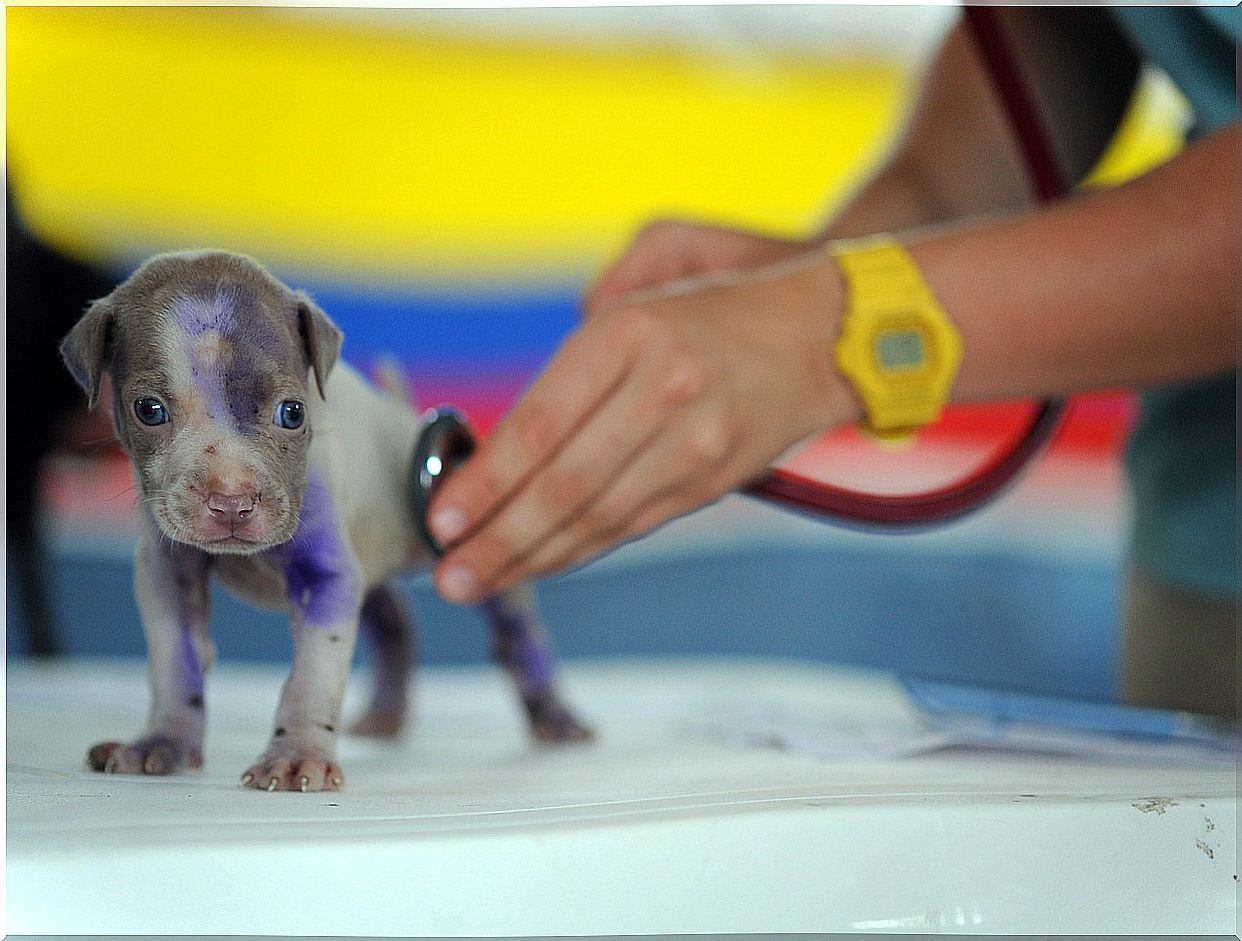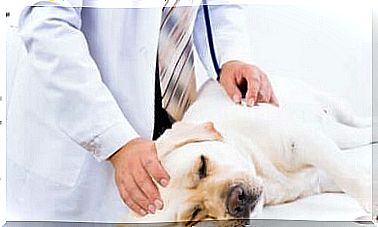Can Canine Distemper Be Caught Even After The Dog Is Vaccinated?

Canine distemper is one of the most common and feared diseases among pet owners, which is why we insist on vaccinating them. However, it is possible that your dog will still contract this disease. So find out in this article what are the dangers of distemper.
What is canine distemper?
Distemper is a viral disease that can affect dogs of any age. However, puppies are the most vulnerable to suffering from it, as their immune system is still developing.
In addition, older dogs are also exposed to this disease as, over the years, their immune system loses strength.
The danger of this disease is the ease of contagion. So, no matter how protected your dog is, if there are animals around, he will be exposed to disease.
In addition, distemper affects not only dogs, but other species as well. For example, the ferret or the raccoon can be infected.
As for the symptoms of distemper, we can find respiratory problems, such as:
- green nasal secretion
- fever
- loss of appetite
- weakness
- dehydration
- diarrhea
- vomiting or coughing
- In its most advanced state, we can see seizures or nervous tics

If you want to know if your dog has distemper, an almost surefire sign is to check the pads on his paws. These become tougher when the dog is affected by this disease because its skin thickens, perhaps in an attempt to protect itself.
We also recommend reading: Clicker training method, what it is and how to implement it
Can dogs get distemper after being vaccinated?
We can make a comparison with measles, which we all contracted as children, and which also has a vaccine to prevent it.
Now, can a person get measles even after being vaccinated? Yes, we know that it is possible to get a disease even after getting vaccinated.
The same logic applies to dogs. They can get canine distemper even if they are vaccinated against it. Thus, it is clear that the vaccine is an excellent way to prevent this disease. However, it is important to know that it does not eliminate 100% the risk of infection.
Why vaccinate your dog if he can still get sick?
Many vaccinated dogs are still infected with distemper for one reason only: their owners do not know that they need to renew the dose of the vaccine annually.
This is because there are many owners who do not have complete information and believe that the distemper vaccine is given once or twice and that this is enough. Also, there is still the myth that the distemper vaccine will immunize your dog for three years.
On the other hand, there are those who believe that a lifetime vaccine is more than enough for an animal to be protected, which we already know is not true.
We also recommend reading: Do cats perceive people’s energy?
What situations facilitate the spread of canine distemper?
The vaccinated dog may also have distemper due to a weakness in the immune system, which can be caused by other diseases and conditions.
Also, your immune system may be weakened due to depression or even stress.
When he doesn’t feel well, his defenses lower and he becomes a hotbed for infections, distemper and other illnesses. This is especially dangerous if there are other pets in or around the house that he might come into contact with.
Another problem is that we sometimes believe that a vaccine immunizes against everything. So we think that, as our dog is vaccinated against distemper, it’s okay if another pet at home has it, or if it has contact with an infected animal. It must be remembered that the vaccine protects, but does not make you invincible.
Know your role as a responsible owner
Avoid any situation that could put your pet at risk and keep your vaccination schedule up to date.
Observe the movements and changes in your dog’s body or mood, and take him to the vet for the slightest sign of distemper.
Remember that this disease is usually fatal. Therefore, your quick action to give the necessary help and treatment to your dog will be vital and may even save his life.









